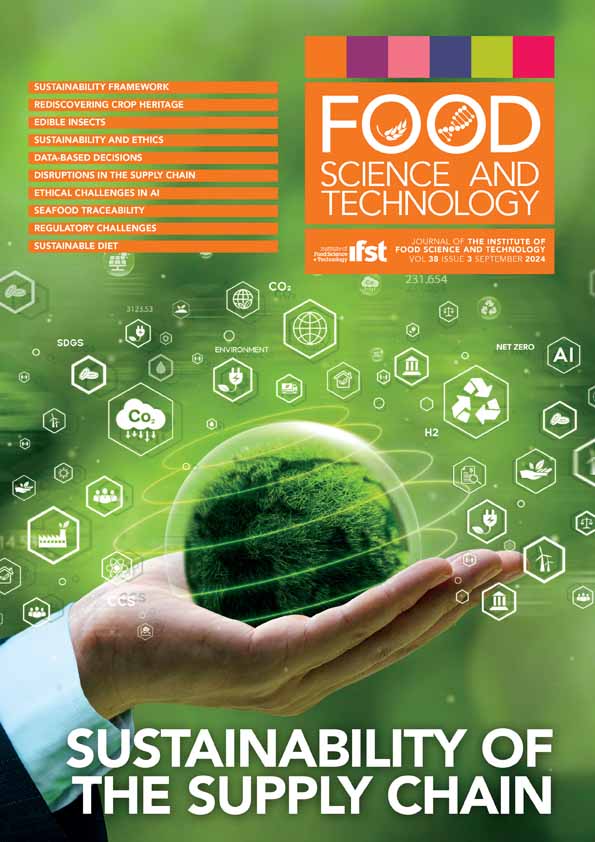Production of protein bars with Nile tilapia protein concentrate
Q2 Agricultural and Biological Sciences
引用次数: 0
Abstract
Commercial protein bars such as whey protein bars (New Millen® protein complex premium) are consumed worldwide and are usually made with whey as a protein source. Fish protein concentrate (FPC) is an alternative protein of animal origin with a different amino acid profile and fatty acid composition and can be produced from mechanically separated meat (MSM) of Nile tilapia (Oreochromis niloticus). This study investigated FPC for its nutritional characteristics and microbiological quality for the manufacture of protein bars. The FPC-enriched bars presented a potential profile of essential fatty acids for human consumption. The sensory evaluation showed good acceptance scores, with no differences from the control (commercial product) and high purchase intention. The inclusion of 5.3% of FPC in the protein bars with different flavors may be a promising alternative to produce a high nutritional value product for human consumption, besides favoring the sustainability of the fish supply chain.用尼罗罗非鱼浓缩蛋白生产蛋白棒
乳清蛋白棒(New Millen® protein complex premium)等商业蛋白棒在全球范围内都有消费,通常使用乳清作为蛋白质来源。鱼浓缩蛋白(FPC)是一种替代性动物源蛋白质,具有不同的氨基酸谱和脂肪酸组成,可从尼罗罗非鱼(Oreochromis niloticus)的机械分离肉(MSM)中生产。本研究调查了用于生产蛋白棒的 FPC 的营养特性和微生物质量。富含 FPC 的蛋白棒具有供人类食用的必需脂肪酸的潜在特征。感官评估结果显示接受度良好,与对照组(商业产品)无差异,购买意愿较高。在不同口味的蛋白棒中添加 5.3% 的 FPC 可能是生产高营养价值产品供人类食用的一种有前途的替代方法,此外还有利于鱼类供应链的可持续发展。
本文章由计算机程序翻译,如有差异,请以英文原文为准。
求助全文
约1分钟内获得全文
求助全文
来源期刊

Food Science and Technology
农林科学-食品科技
自引率
0.00%
发文量
0
审稿时长
12 weeks
期刊介绍:
Information not localized
 求助内容:
求助内容: 应助结果提醒方式:
应助结果提醒方式:


